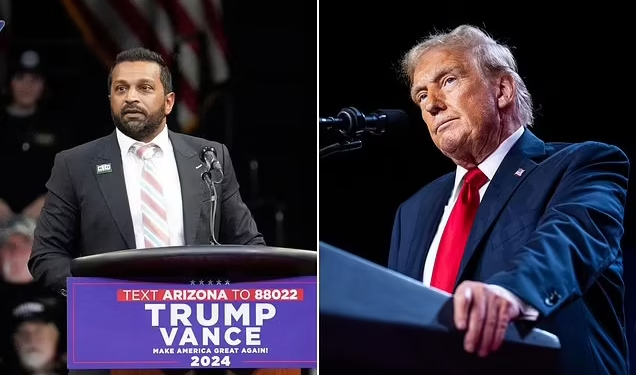President-elect Donald Trump has named Kash Patel, a renowned Indian-American and close associate, as the next Director of the Federal Bureau of Investigation (FBI). The move has sparked debate, as it speaks to the future of the FBI and the career trajectory of Patel.
Who is Kash Patel?
Attorney and senior national security and law enforcement experience, Kashyap “Kash” Patel is someone associated with loyalty to former president Trump. He gained significant prominence during the former president’s first term. The man also had stints as Chief of Staff to the Acting Secretary of Defense. He was also a key adviser in the National Security Council. He played a highly active role in contentious investigations during the Trump administration. It includes the inquiry into Russian interference in the 2016 election.
Why him?
Trump’s choice of Patel reveals a strategy of installing a loyalist in a sensitive position. The president-elect has often expressed mistrust of the FBI under Christopher Wray, who is its director. Patel’s nomination indicates that the president-elect is planning to reshape the agency. It will be to fit more in line with his administration’s agenda.

This also further reiterates Patel’s reputation as a strong Trumpist. As a lawyer with a legal strategy, Patel has supported policies that appeal to Trump’s voter base and would be an excellent choice to run the FBI in case of a second term.
Backlash Over the Nomination
The nomination has drawn sharp criticism. Critics argue that Patel’s appointment could compromise the FBI’s independence. Former FBI officials have expressed concern that his leadership may politicize the agency, potentially undermining public trust. Patel’s detractors cite his previous involvement in highly partisan issues as evidence of potential bias. However, Trump supporters view the nomination as a step toward reforming an agency they consider biased. To them, his leadership presents the opportunity to take the FBI into a new direction that can be transparent and accountable.
His confirmation is far from sure. The Senate has to confirm the nomination, and Democrats, along with many moderate Republicans, are sure to grill him on his experience and earlier assignments. His dubious past, including charges of playing partisan politics, will probably come under intense scrutiny at confirmation hearings.
Effect on Indian-American Representation
Should it be confirmed, Patel will mark the first Indian-American who would lead the FBI. His nomination underscores the expanding influence of Indian-Americans on US politics. Though his confirmation could be a great source of encouragement for many in the Indian-American community, however it raises questions regarding the lines drawn between representation and political persuasion.

His appointment as FBI Director marks a crucial moment for American politics. On the positive side, it brings some new perspective to the table for the FBI, whereas on the other hand, major challenges arise with respect to this agency’s autonomy and public image. As the confirmation process begins, the future trajectory of this historic nomination will take shape based on Patel’s vision for the FBI as well as his ability to navigate bipartisan scrutiny.



